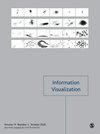Visualisation of Random Forest classification
IF 1.8
4区 计算机科学
Q3 COMPUTER SCIENCE, SOFTWARE ENGINEERING
引用次数: 0
Abstract
Decision Trees (DTs) stand out as a prevalent choice among supervised Machine Learning algorithms. These algorithms form binary structures, effectively dividing data into smaller segments based on distinct rules. Consequently, DTs serve as a learning mechanism to identify optimal rules for the separation and classification of all elements within a dataset. Due to their resemblance to rule-based decisions, DTs are easy to interpret. Additionally, their minimal need for data pre-processing and versatility in handling various data types make DTs highly practical and user-friendly across diverse domains. Nevertheless, when confronted with extensive datasets or ensembles involving multiple trees, such as Random Forests, its analysis can become challenging. To facilitate the examination and validation of these models, we have developed a visual tool that incorporates a range of visualisations providing both an overview and detailed insights into a set of DTs. Our tool is designed to offer diverse perspectives on the same data, enabling a deeper understanding of the decision-making process. This article outlines our design approach, introduces various visualisation models, and details the iterative validation process. We validate our methodology through a telecommunications use case, specifically employing the visual tool to decipher how a DT-based model determines the optimal communication channel (i.e. phone call, email, SMS) for a telecommunication operator to use when contacting a client.随机森林分类的可视化
在有监督的机器学习算法中,决策树(DTs)是最普遍的选择。这些算法形成二进制结构,根据不同的规则有效地将数据划分为更小的部分。因此,DT 树可作为一种学习机制,用于识别数据集中所有元素的最佳分离和分类规则。由于 DTs 类似于基于规则的决策,因此很容易解释。此外,DTs 对数据预处理的需求极低,而且在处理各种数据类型方面具有多功能性,因此在不同领域都具有很强的实用性和用户友好性。然而,当面对大量数据集或涉及多棵树的集合(如随机森林)时,其分析可能会变得具有挑战性。为了便于检查和验证这些模型,我们开发了一种可视化工具,其中包含一系列可视化内容,既能提供一组 DT 的概览,也能提供详细的洞察。我们的工具旨在为相同的数据提供不同的视角,从而加深对决策过程的理解。本文概述了我们的设计方法,介绍了各种可视化模型,并详细介绍了迭代验证过程。我们通过一个电信用例来验证我们的方法,特别是利用可视化工具来解读基于 DT 的模型如何确定电信运营商在联系客户时使用的最佳通信渠道(即电话、电子邮件、短信)。
本文章由计算机程序翻译,如有差异,请以英文原文为准。
求助全文
约1分钟内获得全文
求助全文
来源期刊

Information Visualization
COMPUTER SCIENCE, SOFTWARE ENGINEERING-
CiteScore
5.40
自引率
0.00%
发文量
16
审稿时长
>12 weeks
期刊介绍:
Information Visualization is essential reading for researchers and practitioners of information visualization and is of interest to computer scientists and data analysts working on related specialisms. This journal is an international, peer-reviewed journal publishing articles on fundamental research and applications of information visualization. The journal acts as a dedicated forum for the theories, methodologies, techniques and evaluations of information visualization and its applications.
The journal is a core vehicle for developing a generic research agenda for the field by identifying and developing the unique and significant aspects of information visualization. Emphasis is placed on interdisciplinary material and on the close connection between theory and practice.
This journal is a member of the Committee on Publication Ethics (COPE).
 求助内容:
求助内容: 应助结果提醒方式:
应助结果提醒方式:


